Jesus to Little Mary on February 28, 2024:
“The Righteous Man” (Mass readings: Jeremiah 18:18-20), Psalm 30, Matthew 20:17-28)
My little Mary, [God] the Most Holy Father strongly calls and exhorts men to be righteous, even if the righteous man [or woman] always pays the price for his rectitude in terms of persecution, as the enemies of God, the forces of darkness, do not remain passive and helpless in the face of his works. They rise up and cause trouble for the just man in order to silence him, to discredit him and overshadow his righteous cause, since the correctness of his behavior, his moral integrity is a light for consciences, shining around him, putting into practice the word of God that they they want to erase. When practiced, righteousness moves and shakes dormant souls, reforming them through its example for renewed good.
Since ancient times, the just person has lived out redemption in suffering, misunderstood and attacked by those who experience his nature [as contrary to theirs]. This is what has always happened to the prophets who have spoken in God’s name, proclaiming what is right and true. One of them is Jeremiah, presented to you in the first reading. He, a just man, announces the Divine Will, but is not accepted: they want to have him condemned to death, they try to kill him, he is subjected to serious punishments, and he, whose soul is tender and sensitive, suffers in the face of such manifest human hardness, mostly in his heart.
Perhaps so much tribulation in defense of the cause of the Eternal was wasted? Where is Jeremiah, if not triumphant in Heaven where he reigns in his glory? And where are his persecutors if not eternally confounded in their perdition? Who is the just man, if not he who comes to serve, to place himself at the service of others, to the point of giving his life, and who is he, if not myself, your Lord, I who make myself a gift for all?
In the Gospel, going towards Jerusalem, I announce to My apostles that I will suffer much, that I will be condemned and crucified, that I have come not to be served, but to serve to the point of shedding My blood in order to give life to men. Did they understand anything of this? The mother of James and John asks me for places of honor in heaven for her sons, and they themselves ask for and aspire to them [such places], but I announce to them and place before them not a throne of glory, but a bitter cup. They argue about greatness; I present the cross.
Who is offering such service? The one who has a heart that loves, a loyal and truthful heart, the one who is just. Those who live by love set out to become even the least of servants in order to be offered up for others. Only by following the Master, identifying with Me, retracing My footsteps, loving Me, do you become similar to Me and therefore righteous servants of love.
You will say to Me: “Yes, Lord, but if being righteous costs so much tribulation and self-denial, why be righteous?” Children, righteousness brings life, makes the good flourish, and holiness arises in striving to be faithful. What glory there is in the acquisition of merits to be offered to the Most Holy Father! If I myself, righteous among the righteous, paid for the conquest of your salvation, you too must each give your own part in offering your own tribute of justice as practiced, which is credit in the balance[1]As in a bank account. of love for redeeming your brothers and sisters.
You will all be weighed on the scales of justice, where your soul will be weighed with its crown of just works with which it was able to clothe itself through the giving of mercy. This will be the inheritance that will accompany you into eternity, where the righteous will continue their path behind the Master in bliss with their palms of victory. The Lord of Lords richly rewards those who have lived out His teaching, which is justice, balanced with the mercy that He is.
I bless you.
Footnotes
| ↑1 | As in a bank account. |
|---|





 Alicja Lenczewska
Alicja Lenczewska

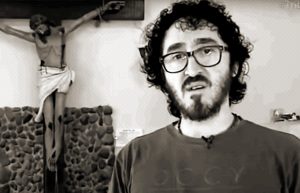
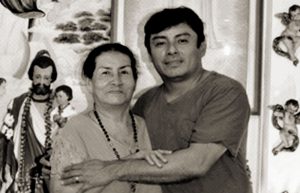
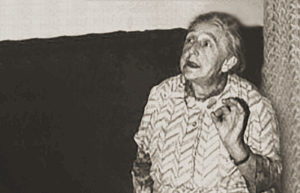 Elizabeth Kindelmann
Elizabeth Kindelmann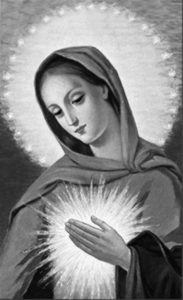 Through what became The Spiritual Diary, Jesus and Mary taught Elizabeth, and they continue to instruct the faithful in the divine art of suffering for the salvation of souls. Tasks are assigned for each day of the week, which involve prayer, fasting, and night vigils, with beautiful promises attached to them, laced with special graces for priests and the souls in purgatory. In their messages, Jesus and Mary say that The Flame of Love of the Immaculate Heart of Mary is the greatest grace given to mankind since the Incarnation. And in the not-so-distant future, her flame will engulf the entire world.
Through what became The Spiritual Diary, Jesus and Mary taught Elizabeth, and they continue to instruct the faithful in the divine art of suffering for the salvation of souls. Tasks are assigned for each day of the week, which involve prayer, fasting, and night vigils, with beautiful promises attached to them, laced with special graces for priests and the souls in purgatory. In their messages, Jesus and Mary say that The Flame of Love of the Immaculate Heart of Mary is the greatest grace given to mankind since the Incarnation. And in the not-so-distant future, her flame will engulf the entire world.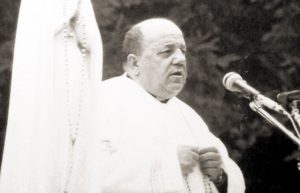 Father Stefano Gobbi
Father Stefano Gobbi Why Gisella Cardia?
Why Gisella Cardia?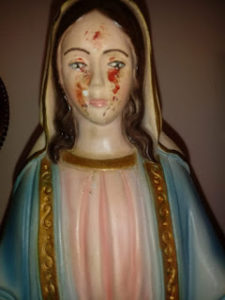 Thirdly, the messages have frequently been accompanied by visible phenomena, photographic evidence found in In Cammino con Maria, which cannot be the fruit of subjective imagination, notably the presence of the stigmata on Giselle’s body and and the appearance of crosses or religious texts in blood on Gisella’s arms. See the pictures taken from her apparition website
Thirdly, the messages have frequently been accompanied by visible phenomena, photographic evidence found in In Cammino con Maria, which cannot be the fruit of subjective imagination, notably the presence of the stigmata on Giselle’s body and and the appearance of crosses or religious texts in blood on Gisella’s arms. See the pictures taken from her apparition website 
 Jennifer
Jennifer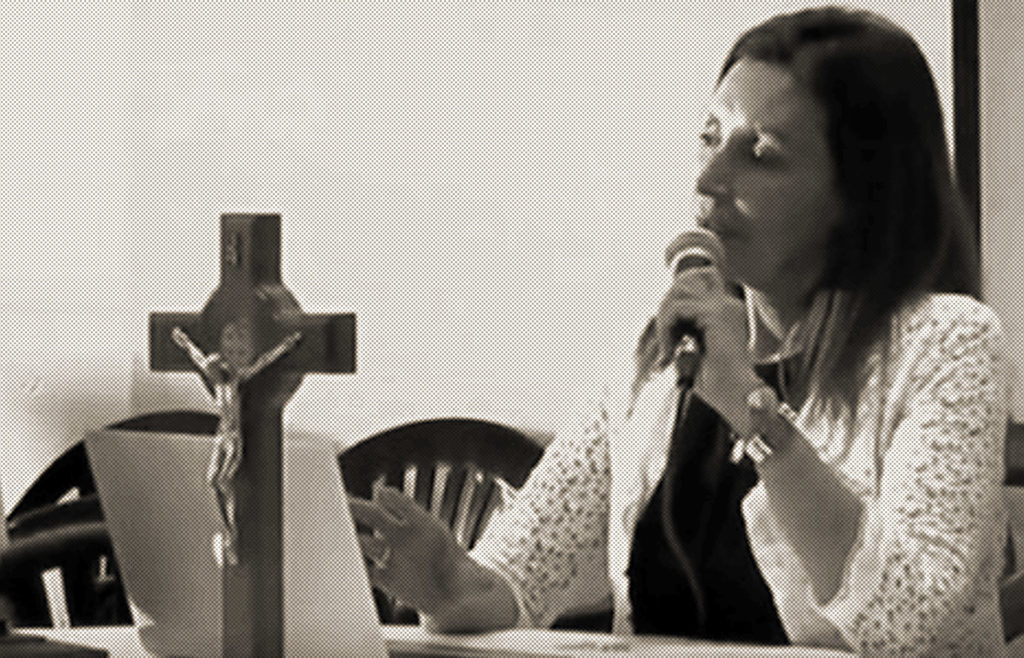
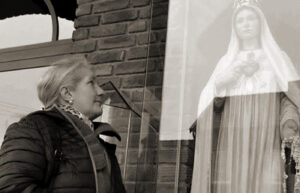 Why Manuela Strack?
Why Manuela Strack?

 Why the Visionaries of Our Lady of Medjugorje?
Why the Visionaries of Our Lady of Medjugorje? Why Pedro Regis?
Why Pedro Regis?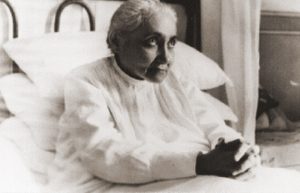 Why the Servant of God Luisa Piccarreta?
Why the Servant of God Luisa Piccarreta? of the saints. It wasn’t until she became a “Daughter of Mary” that the nightmares finally ceased at the age of eleven. In the following year, Jesus began to speak interiorly to her especially after receiving Holy Communion. When she was thirteen, He appeared to her in a vision that she witnessed from the balcony of her home. There, in the street below, she saw a crowd and armed soldiers leading three prisoners; she recognized Jesus as one of them. When He arrived beneath her balcony, He raised his head and cried out: “Soul, help Me!” Deeply moved, Luisa offered herself from that day on as a victim soul in expiation for the sins of mankind.
of the saints. It wasn’t until she became a “Daughter of Mary” that the nightmares finally ceased at the age of eleven. In the following year, Jesus began to speak interiorly to her especially after receiving Holy Communion. When she was thirteen, He appeared to her in a vision that she witnessed from the balcony of her home. There, in the street below, she saw a crowd and armed soldiers leading three prisoners; she recognized Jesus as one of them. When He arrived beneath her balcony, He raised his head and cried out: “Soul, help Me!” Deeply moved, Luisa offered herself from that day on as a victim soul in expiation for the sins of mankind. immobile, rigid-like state that appeared almost as if she were dead. It was only when a priest made the sign of the Cross over her body that Luisa regained her faculties. This remarkable mystical state persisted until her death in 1947—followed by a funeral that was no little affair. During that period in her life, she suffered no physical illness (until she succumbed to pneumonia at the end) and she never experienced bedsores, despite being confined to her little bed for sixty-four years.
immobile, rigid-like state that appeared almost as if she were dead. It was only when a priest made the sign of the Cross over her body that Luisa regained her faculties. This remarkable mystical state persisted until her death in 1947—followed by a funeral that was no little affair. During that period in her life, she suffered no physical illness (until she succumbed to pneumonia at the end) and she never experienced bedsores, despite being confined to her little bed for sixty-four years.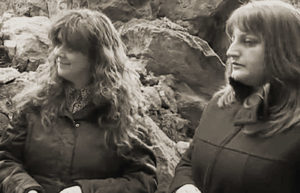 Why Simona and Angela?
Why Simona and Angela?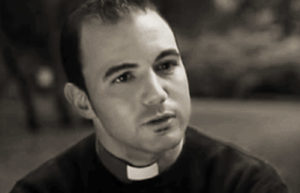
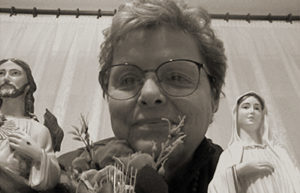 Valeria Copponi
Valeria Copponi